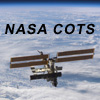 |
||
| Tuesday / 29 August 2006 | ||
NASA Makes
Safe Bet Going With 'Ailing' Firms as COTS Winners.
Although most media have focused on
the fact Rocketplane Kistler's (RpK) COTS plan was formerly bankrupt
and that SpaceX's maiden launch in March crashed, NASA made the safest
choice for its COTS Demonstrations Program. That's because RpK and
SpaceX have more hardware than any of the other COTS competitors,
by far.
NASA
can
realistically expect them to deliver cargo to the ISS before 2010.
Also, each firm is self-supported and was heading in a direction
to supply orbital space access without government help. SkyCorp Founder
Dennis Wingo is especially optimistic about the firms' chances for
success
because they have the ISS and the Bigelow Aerospace space stations
as paying customers. The stations, together with SpaceX and RpK,
may open new markets and offer a staging point to the Moon, he says.
A COTS failure would set the NewSpace movement back and bolster the
perception
that
the
current
American
space industry
model is the only way to open space, although it is slow and expensive.
"The hopes of a generation of space enthusiasts ride on their success
and it
cannot
be underestimated
how high the stakes are for the NewSpace movement," says Wingo of
SpaceX and RpK. If government can help by providing tax incentives,
he thinks commerce
could expand to where private companies are helping develop a
Moonbase by 2016. SpaceX, although it has several partners, including
Paragon,
will do most of its work in-house to save on cost. Meanwhile, RpK
has outsourced most of its COTS K-1 vehicle work to Orbital Sciences
Corp, Northrop Grumman, Lockheed Martin and others. Already, a book
has been released on the history of the commercial space industry:
'International Space Commerce' by Roger Handberg. Jeff Foust
reviews it at www.thespacereview.com.
Sources: www.space.com,
http://space.com/spacenews.
|
||
